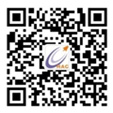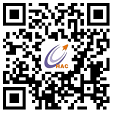Global Smart Meters Market to Reach US$29.8 Billion by the Year 2026
Smart meters are electronic devices that record the consumption of electricity, water or gas, and transmit the data to utilities for billing or analytics purposes. Smart meters hold various advantages over traditional metering devices that are driving their adoption globally. Growth in the global market is set to be fueled by increasing focus on energy efficiency, favorable government policies and critical role of smart meters in enabling reliable power grids. Market growth is bolstered by government mandates and initiatives to promote installation of these devices in commercial and residential settings. These initiatives are also intended to raise user awareness about efficient and smart usage of electricity through these meters. Environment and energy policies and legislations across countries like the US, Japan and South Korea focus on 100% penetration of these meters. The market growth is augmented by increasing focus on smart cities and smart grids, requiring utilities to push distribution efficiency. Global deployment of smart meters is favored by increasing digitalization to transform the power sector. Utility companies are increasingly relying on the smart meter technology to cut transmission and distribution losses. These devices allow companies to efficiently monitor consumption and usage for gaining insights into losses.
Amid the COVID-19 crisis, the global market for Smart Meters estimated at US$19.9 Billion in the year 2020, is projected to reach a revised size of US$29.8 Billion by 2026, growing at a CAGR of 7.2% over the analysis period. Electric, one of the segments analyzed in the report, is projected to grow at a 7.3% CAGR to reach US$17.7 Billion by the end of the analysis period. After a thorough analysis of the business implications of the pandemic and its induced economic crisis, growth in the Water segment is readjusted to a revised 8.4% CAGR for the next 7-year period. For utilities aiming to modernize their grid operations with advanced solutions, smart electricity meters have emerged as an effective tool that can flawlessly address their various energy T&D needs in a simple and flexible manner. Smart electricity meter, being a specially designed electronic measurement device, automatically captures energy consumption patterns of a utility customer and seamlessly communicates the captured information for reliable and accurate billing, while considerably decreasing the need for manual meter reads. Smart electricity meters enable energy regulators, policymakers and governments to reduce environmental footprint and move towards energy independence. Smart water meters are witnessing increased demand influenced by the roll out of stringent government regulations.



